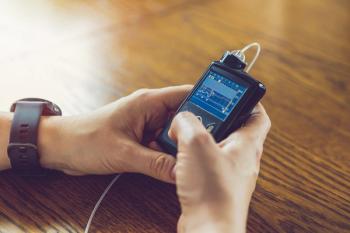
Legislation Must Control Drug Prices and Support Innovations like Biosimilars
The U.S. biosimilar landscape is changing, and legislation may be the key to controlling drug prices and advancing the market.
Legislation such as the Advancing Education on Biosimilars Act CITE and the Inflation Reduction Act CITE are essential to changing the biosimilar landscape and provide opportunities for providers and patients to overcome barriers of uptake, including hesitancy, by promoting education around, as well as the affordability of and patient access to biosimilars.
Drug costs are a major topic in the United States, especially in politics. Currently, 40% pharmaceutical spending is on biologic drugs, but only 2% of the population utilize them. As biosimilars have been approved in the U.S., approvals in Europe have historically lagged.
In a poster presented at the American Society of Health-System Pharmacists 2022 Midyear Clinical Meeting and Exhibition, researchers investigated whether the speed of U.S. biosimilar approvals have matched that of Europe, identify factors that contribute to differences in utilizations, and analyze potential impacts of U.S. legislation on the biosimilar market.
The study was a literature review using PubMed and Medline (Ovid) databases. Only articles written in English and in the last 5 years were included. They also had to be clinical trials, reviews, systematic review, and meta-analysis.
In terms of approved biosimilars, the U.S. trails Europe with 39 and 71 biosimilars approved respectively as of September 2022. Factors like delayed legislative support, complex approval processes, fragmented healthcare payer systems, lack of education, interchangeability guidance, and patent litigations contribute to the lag in approvals.
Biosimilar approvals have accelerated in recent years, and legislation like The Advancing Education on Biosimilars Act of 2021 may be the reason.
“While the Inflation Reduction Act of 2022 would promote patient access and affordability by allowing the Department of Health and Human Services to negotiate pharmaceutical pricing, it may discourage biosimilar drug development and thus reduce competition,” researchers wrote.
The U.S. can stand to learn from the limitations of the European biosimilar market. Manufacturers in Europe hesitate to market biosimilars because of abundance of approvals and trend in market withdrawals.
“With the number of biosimilars in development and biologic patent expirations swiftly approaching, it is critical that legislation is moderated to reasonably control drug costs while promoting and supporting innovation. Additional research and monitoring will be needed to further assess the number of biosimilar products approved and used in the U.S. market,” researchers concluded.
Reference
1. Maruca L, Henry M, Thaman P, Toscani M. Advancing education on biosimilars act and inflation reduction act: will the US biosimilar market match the approval and usage pattern success of the EU market? Presented at: American Society of Health-System Pharmacists 2022 Midyear Clinical Meeting and Exhibition; December 4-8, 2022, Las Vegas, NV. Poster 8-023.
Newsletter
Pharmacy practice is always changing. Stay ahead of the curve with the Drug Topics newsletter and get the latest drug information, industry trends, and patient care tips.























